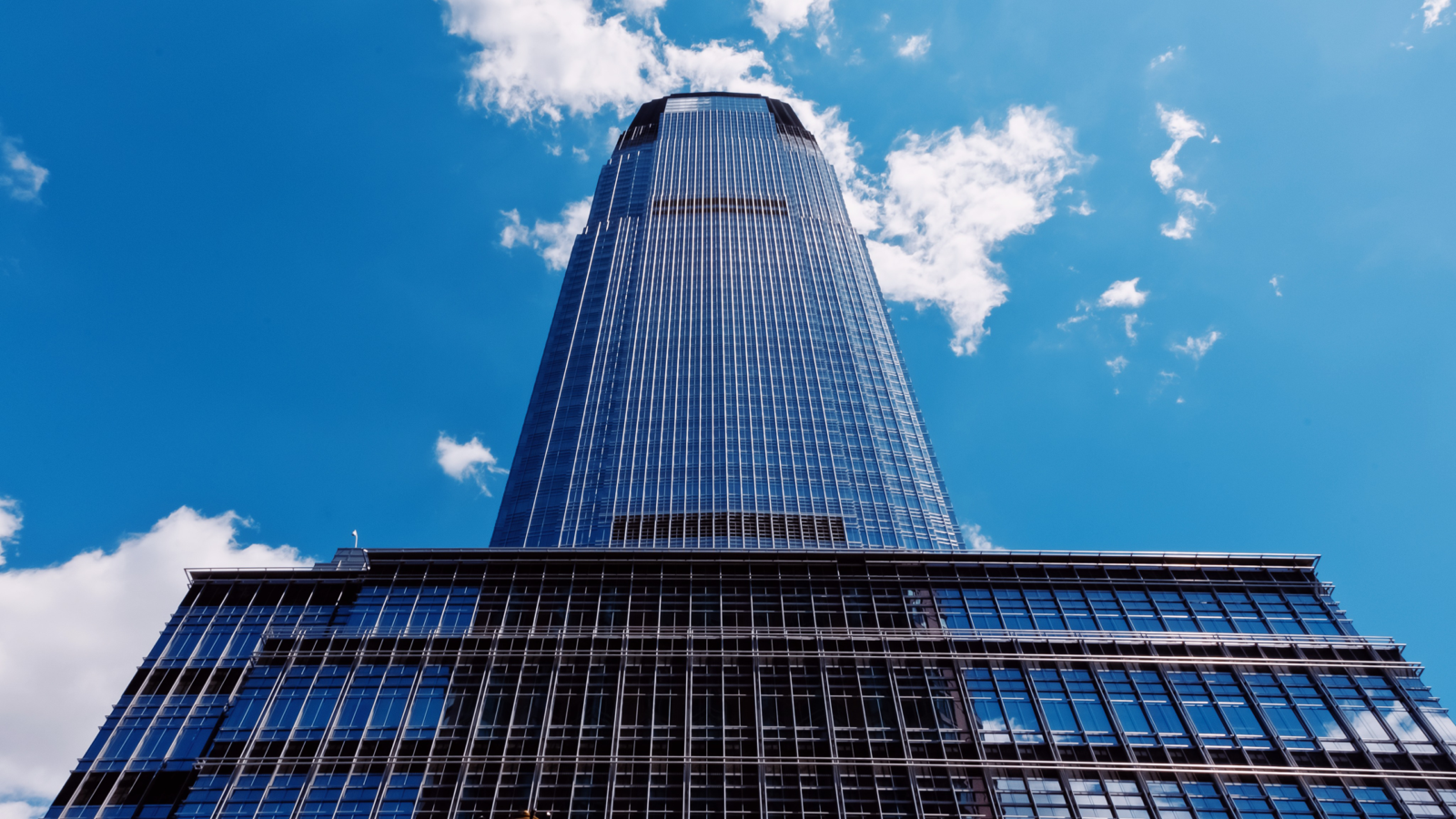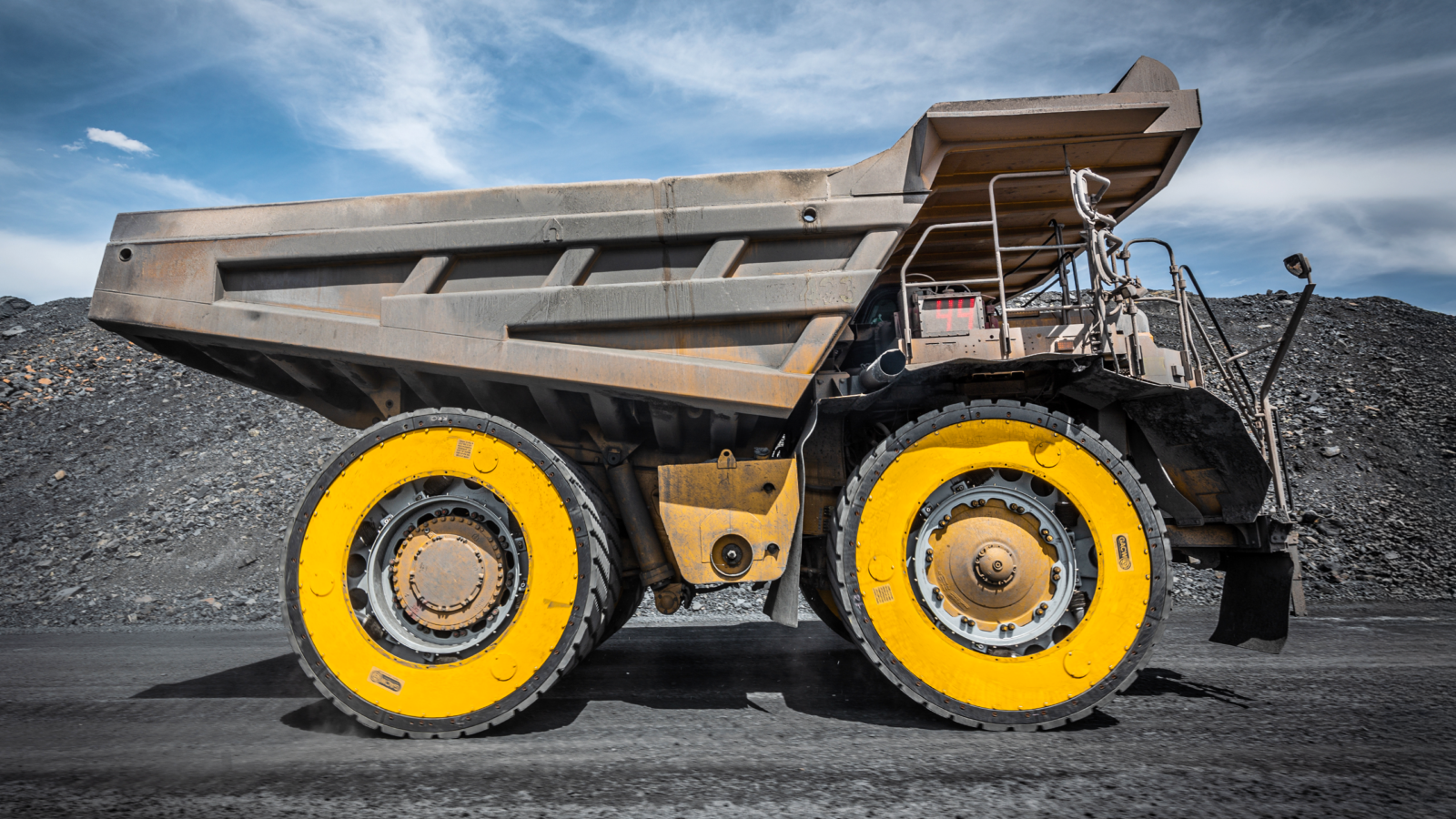Good morning.
Steady on, Jerome Powell.
On Wednesday, the Federal Reserve chairman returned to the spotlight to announce he was doing, well, what everyone expected him to do: nothing. Exactly as expected, the Fed opted to maintain its key borrowing rate target in a range between 4.25%-4.5%, where it’s now been since December. Moreover, despite likely inflationary tariffs and fears of the big R-word, Powell indicated that the central bank still intends to reduce rates by a half-percentage point this year, likely with two cuts. We have to admit: The confidence feels kind of nice in these uncertain times.
Goldman Sachs Downgraded by Investment Bank Oppenheimer

Everyone gets a taste of their own medicine at some point. Even Goldman Sachs.
The prestigious Wall Street investment bank was downgraded Wednesday, along with Jefferies and private equity giant Carlyle, by competitor Oppenheimer. Analysts said they now expect US investment banking revenue to be flat this year, instead of jumping 32% as predicted previously, with an expected increase in dealmaking yet to materialize.
Deals or No Deals
Virtually every firm in the forecasting business — from Goldman to BCG to Morgan Stanley to McKinsey to Deloitte — took a look at their crystal balls at the start of this year and saw pent-up demand from two straight moribund years for mergers and acquisitions being unleashed in 2025.
It was a perfectly reasonable view, given that the new US presidential administration was expected to pursue a lighter regulatory touch, clearing the way for deal activity to thrive. M&A levels, Oppenheimer noted, had fallen “roughly on par with those a decade earlier.” But the policy priority in Washington has turned out to be tariffs, and with deregulation on the back burner for now, Oppenheimer said it has reconsidered its own “very optimistic” hopes for “a major rebound in M&A activity, and its attendant financing activity.” And thus, with the M&A rebound “delayed or cancelled,” came the downgrades to Goldman, Carlyle, and Jeffries, all of which thrive when Wall Street dealmaking is at its busiest:
- Writing that there is “no visible sign of this M&A rebound,” Oppenheimer’s analysts noted deal volume is only 2.4% higher than it was last year. In addition, equity capital markets volume — which accounts for initial public offerings (IPOs) and other sales of shares — has risen a tepid 2.7%.
- There’s a simple buy case for Goldman, however: Its shares are down 16.5% from a February high. In other words, the delay in M&A activity could already be priced in. That’s something Steven Weiss, a managing partner at Short Hills Capital Partners narrowed in on during an appearance on CNBC, stating: “I can only imagine that that analyst either started this week or was on vacation last month: There’s nothing in there that’s new and the time to downgrade [Goldman] was obviously a while ago.”
“At this point, we’re not talking about the M&A market going away, we’re not talking about the IPO market going away, we’re talking about waiting for it to emerge,” Weiss added, noting many forecasts predicted the deal rebound would occur in the second half of 2025.
A Little Patience, Please: Morgan Stanley analysts made a similar case last week. While noting a “whiplash of tariff talks is significantly raising uncertainty for CEOs, boards, and sponsors looking to plan, negotiate, and launch deals,” the bank’s analysts expect this environment to stabilize and the US administration to roll back antitrust enforcement as promised. They added that private equity firms are sitting on $4 trillion in capital and, in a separate note, pointed to BlackRock’s $23 billion Panama Canal port deal earlier this month as a sign that big deals are still possible. Meanwhile, there will likely be more insight as early as next week, when Jefferies is scheduled to report earnings.
Final Day: Invest In The Company Behind One Of TIME’s Best Inventions

They’re solving a massive problem in the mining sector. Companies spend $7M on tire maintenance over the lifetime of a single vehicle, but GACW has created a wheel that lasts the vehicle’s lifetime.
And you have until midnight to become a shareholder.
Their revolutionary Air Suspension Wheel (ASW) technology replaces the traditional air-filled rubber tire– saving money and eliminating tire pollution.
More reasons to invest in GACW?
- Named one of TIME’s Best Inventions, with 4000+ investors already backing the company.
- $4M+ in pending orders from a growing slate of global partners.
- $300B tire market opportunity, from mining to military and automotive.
They’re planning to commercialize their technology this year – and you can join them before it happens.
Driverless Trucking Startup Einride May be Planning a $5 Billion US IPO
Truck stops may get really quiet: Autonomous freight company Einride is considering a US listing this year that the Financial Times reports might value the Swedish startup at more than $5 billion.
Einride was the first company to put a self-driving big rig on a public road in 2019. The Swedish company’s biggest market is the US, where it kicked off a partnership with PepsiCo last fall to ship Frito-Lay snacks. Einride’s A-list client roster also includes GE Appliances, Maersk, and Heineken. The company handles routes around the world and is expected to deploy 200 trucks on UAE roads this week.
While robotrucks don’t get as much hype as robotaxis, McKinsey predicts driverless freight may rev up $600 billion in revenue by 2035 as the global shipping industry looks to go green and get a much-needed new labor force.
AI Takes the Wheel
The driverless freight biz leverages AI to learn routes and handle obstacles. A slew of startups is looking to get the edge on the most advanced AI, including driverless truck companies Gatik and Torc, which announced team-ups with Nvidia this week.
The big-rig biz may be less concerned about AI stealing human jobs than other industries. That’s because trucking’s in the midst of a major labor shortage:
- The US needs 80,000 more drivers ASAP, according to the American Trucking Association, and that figure is expected to double in five years.
- Europe currently needs 200,000 more truckers, McKinsey estimates, and that number will rise to 745,000 in three years.
Driverless trucks could also handle demanding 24/7 conditions and roads that are hazardous to humans. Volvo has sent driverless trucks to mines and quarries, where they have, for instance, carried limestone through dark and narrow tunnels nearly 500 feet underground.
Speed Bumps: AI won’t meet trucking’s labor demand overnight: Driverless trucks can still only operate on designated pre-mapped routes, usually from one hub to another. The industry has to wait for regulators to give their trucks the green light (Europe mostly approves routes on a case-by-case basis, while the US has a patchwork of state-level laws) — not to mention for customers to be less spooked by the sight of an empty big rig barreling toward them.
Turn AI Into Your Personal Profit Engine. Why let AI take your job when it can fund your next vacation? This guide unlocks 200+ ways to turn artificial intelligence into a revenue stream, from content creation to forecasting and analysis. Capitalize on AI’s income-generating potential and start planning that summer trip to Italy. Access your guide now.
Is the Google Pixel Finally Cracking the Smartphone Market?
At long last, the global smartphone market is on the rebound — and this time, Google may be able to enjoy the ride.
On Wednesday, the search giant held a launch event for the new budget-friendly version of its Pixel smartphone, the Pixel 9a, while also slashing the prices of other models. With rivals sputtering, can Google’s hardware division finally share in the industry’s success?
Can You Hear Me Now?
After two straight years of declines, global smartphone sales grew more than 6% year-over-year in 2024, according to a recent report from market intelligence firm IDC. The industry’s top dogs, however, didn’t quite catch the wave. Both Apple and Samsung saw their global market shares shrink last year; Apple’s roughly 20% market share in 2023 slipped to just under 19% in 2024, while Samsung’s fell from 19.5% to 18%, as both experienced a decline in total shipments.
For both companies, the stagnation has marked something of a crisis. Especially for Samsung, whose leadership even issued a formal apology in October for a lack of innovation across its core businesses (and just this week, promised shareholders “meaningful achievements” in acquisitions to boost growth in 2025).
Google, which has long seen its Android division dominate in the smartphone operating system and software space, may finally be seeing its smartphone hardware business — celebrated by techies and product reviewers — start to pick up steam. The launch of its flagship Pixel 9 phone last fall helped it secure 4% of total US smartphone shipments in the third quarter, according to Counterpoint Research. That’s small potatoes, but also a record for the company.
Still, cracking the global market will mean competing with surging Chinese rivals:
- As Apple and Samsung slipped in 2024, China-based Xiaomi scored sales growth of over 15% last year, bumping its third-place market share up a percentage point to 13.6%.
- Fellow Chinese firm Transsion, meanwhile, saw sales growth of nearly 13% last year, bringing its fourth-place market share to nearly 9%.
The Pixel 9a, due to launch next month, will retail at $499 — or $100 cheaper than the comparable iPhone 16e.
Tough Sledding: Still, the biggest roadblock for Google — as usual these days — may well be regulatory roadblocks. The Pixel line, launched in 2016, marked Google’s attempt to seamlessly integrate Android into its larger ecosystem. In addition to possibly forcing the sale of Chrome as a remedy for maintaining an illegal search monopoly, antitrust regulators at the US Department of Justice are still considering forcing the company to sell off the Android division, too, according to recent court filings. On the other hand, the company did just announce its largest acquisition ever — so it may not be too fearful of antitrust regulators, after all.
Extra Upside
- Final Destination: Amtrak’s CEO Stephen Gardner said he is stepping down, weeks after federal cost-cutting head Elon Musk called the national passenger railroad company “embarrassing” and said it should be privatized.
- Iced: Ben & Jerry’s claimed its parent company Unilever violated their merger agreement by firing CEO David Stanley for his political views.
- Auto insurance prices are climbing — is yours still the best deal for what you need? Find out in just a few clicks with Coverage.com. Compare personalized offers and see how much you could save today.**
** Partner
Just For Fun
Disclaimer
*This is a paid advertisement for Global Air Cylinder Wheels’ Regulation CF Offering. Please read the offering circular at invest.globalaircylinderwheels.com.

